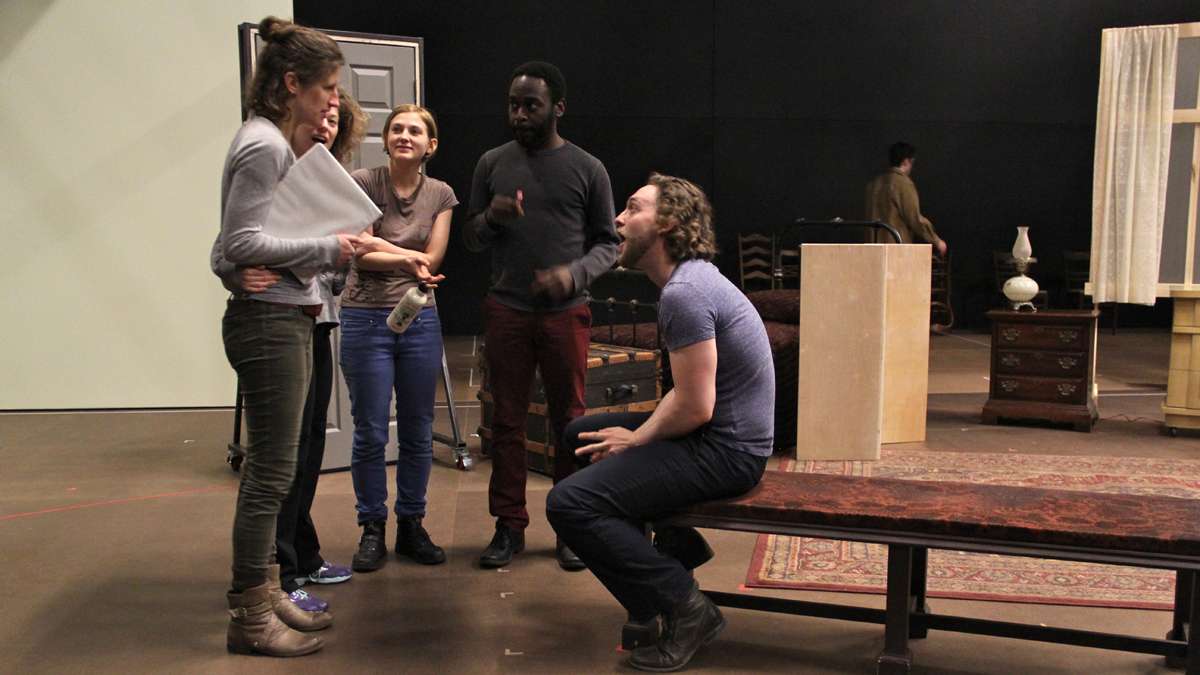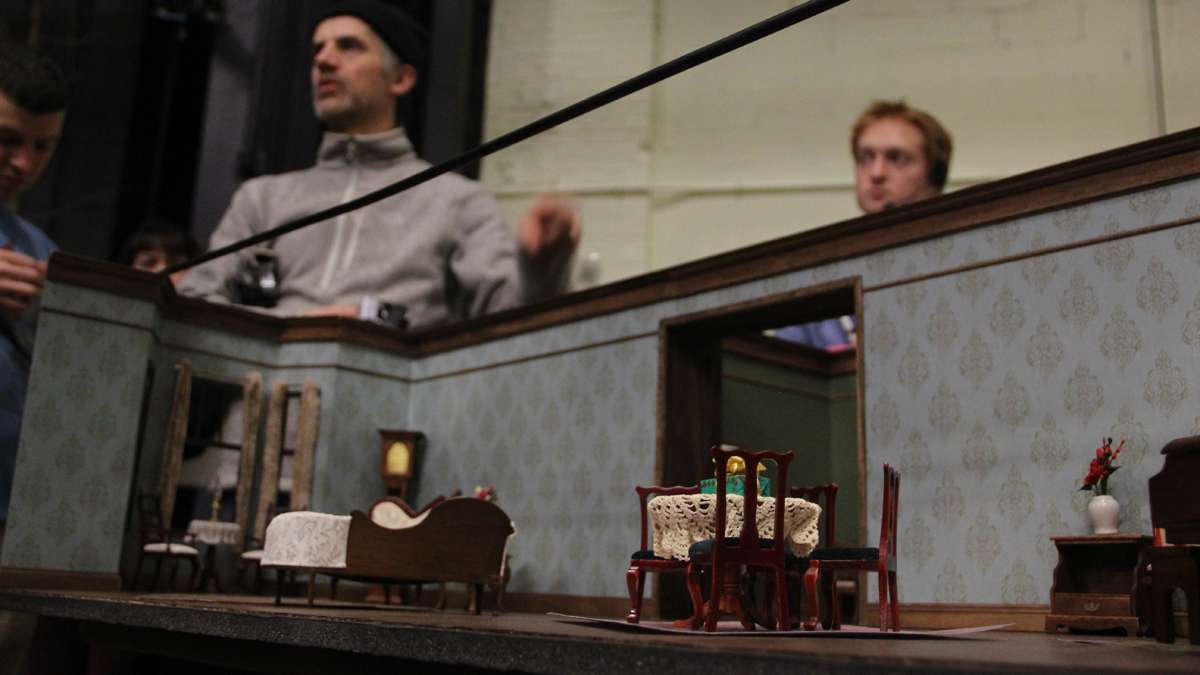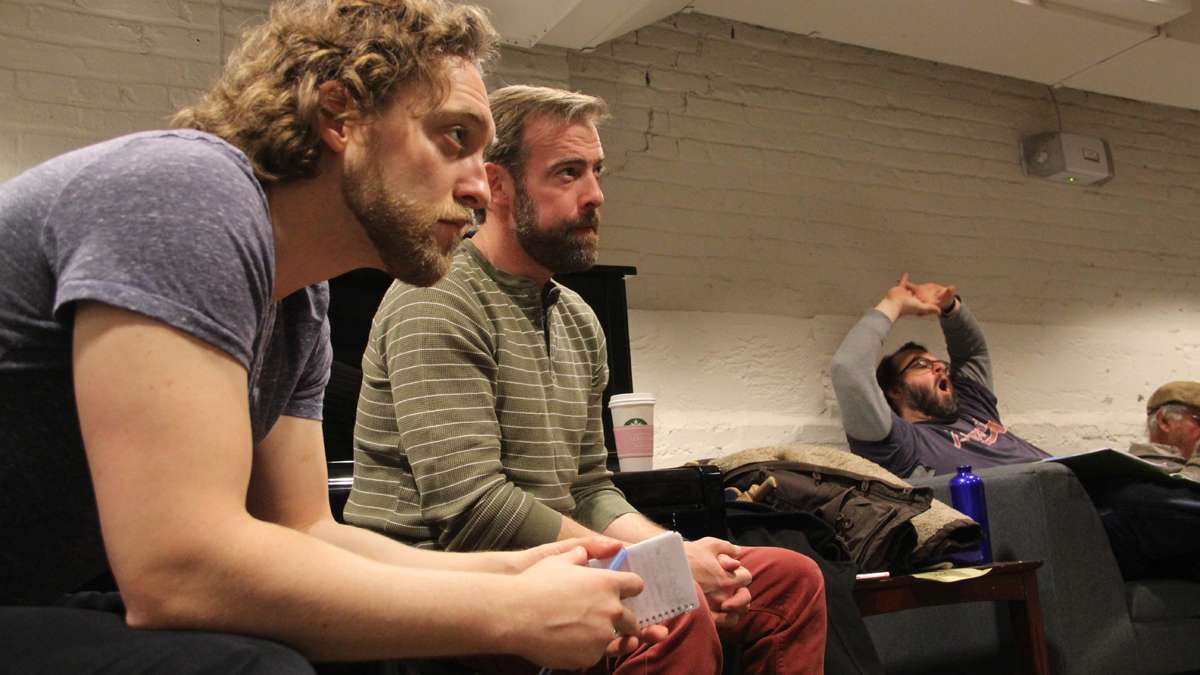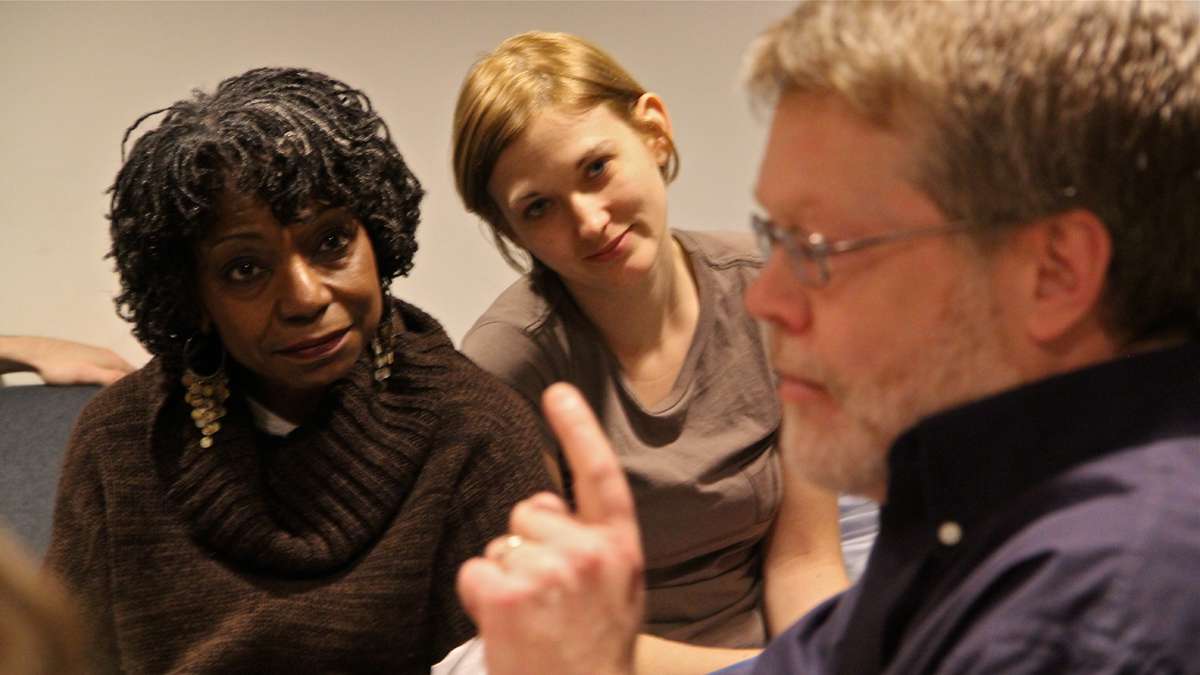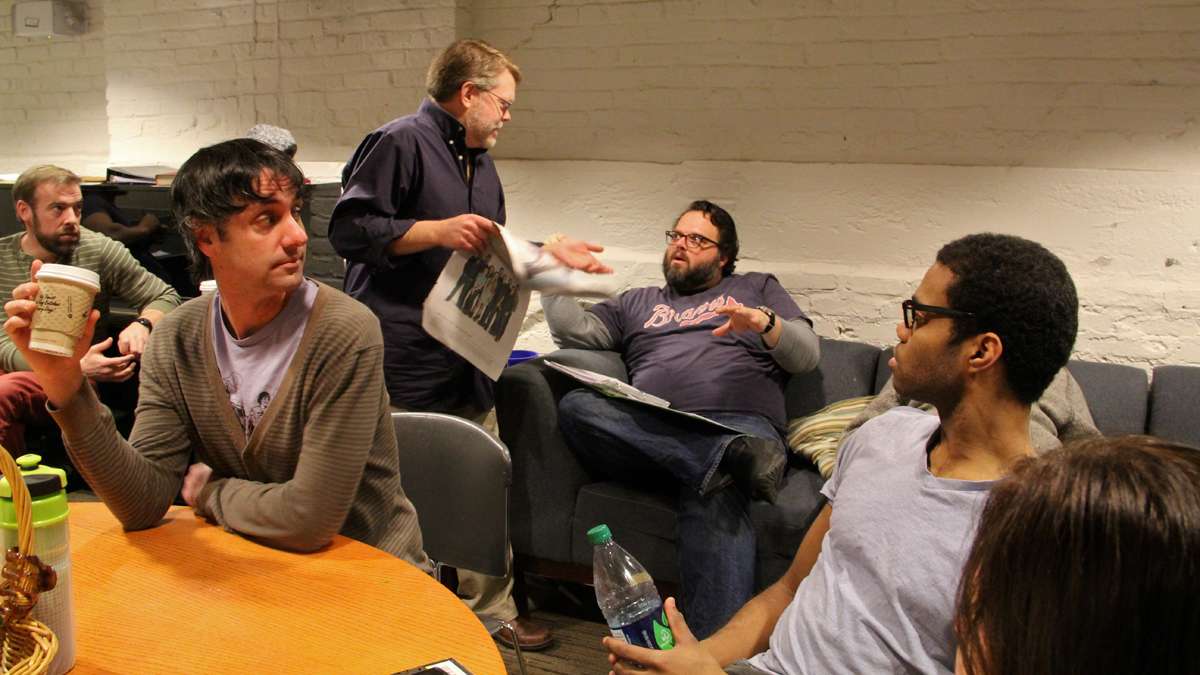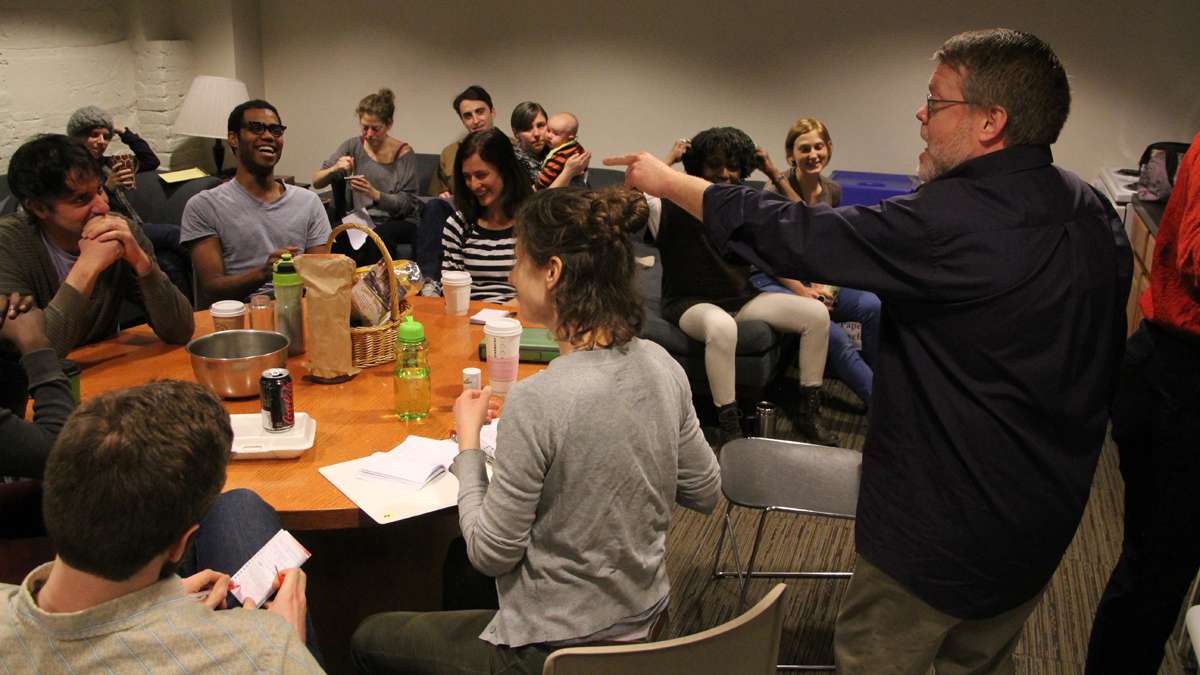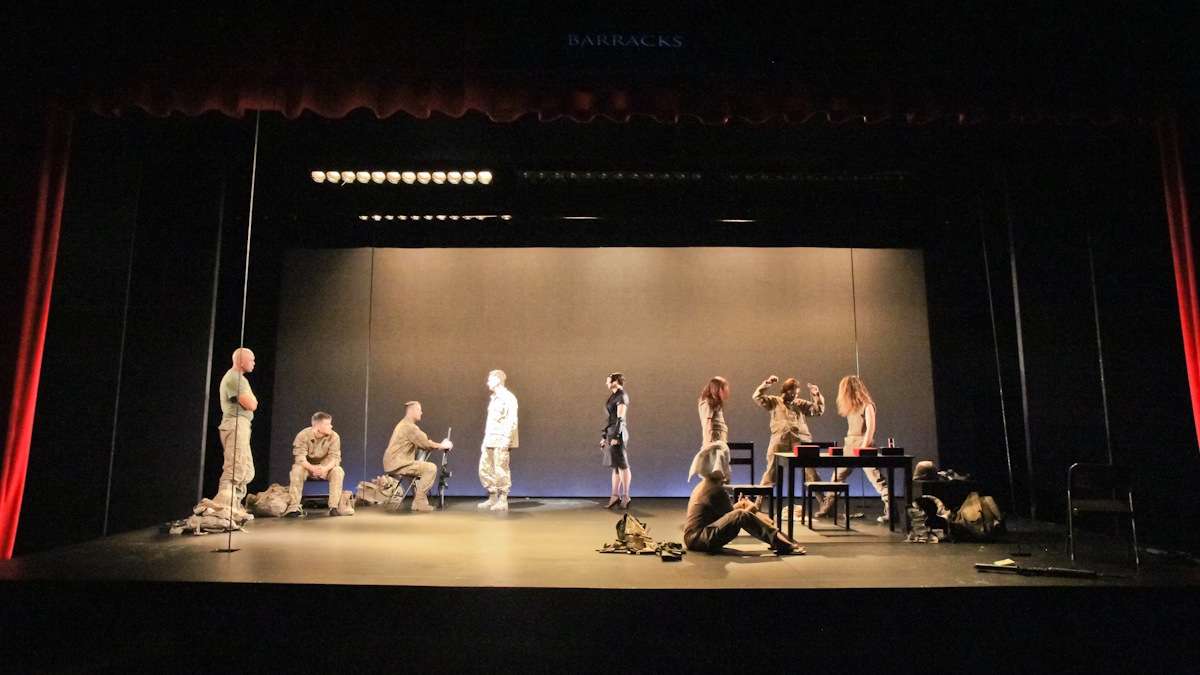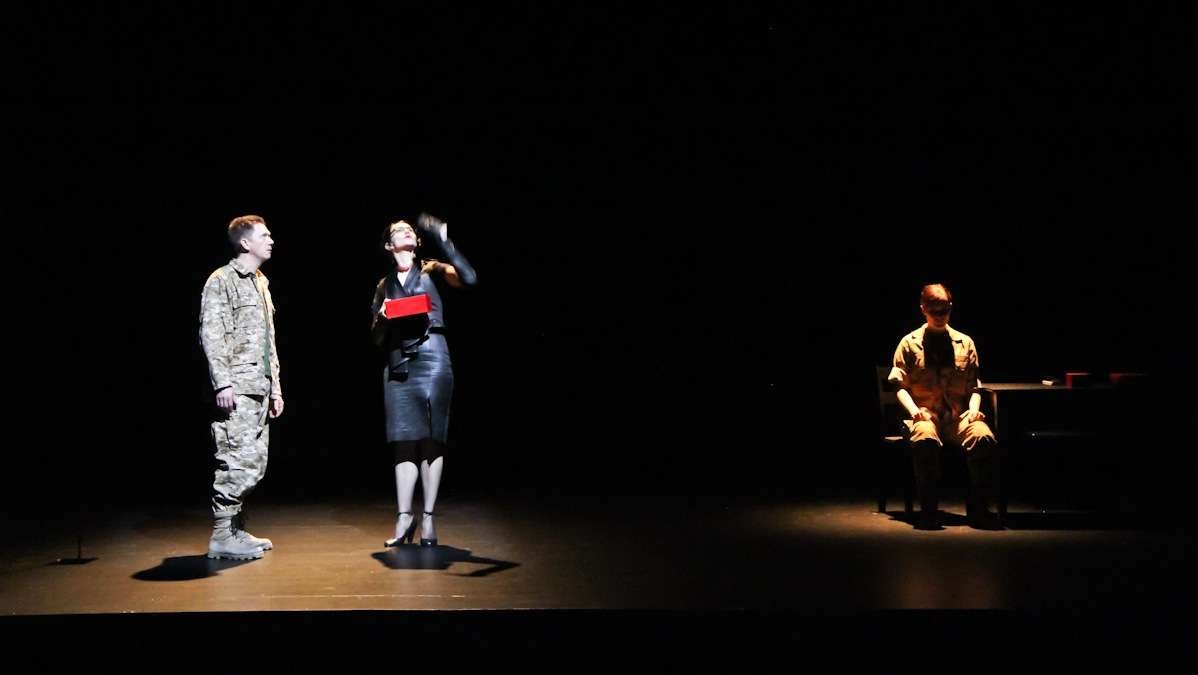Philly playwrights resurrect the company ensemble at Arden, Wilma
Two Philadelphia theaters are bringing back an old tradition that has more or less disappeared in professional regional theater: the company ensemble.
In Act 1 of Anton Chekhov’s “Three Sisters,” one of the sisters berates her brother’s fiancee over her ill-chosen belt.
“The green belt you’re wearing!” exclaims Olga, the eldest sister. “My dear, it’s just not right!”
During a rehearsal run-through at the Arden Theatre in Philadelphia’s Old City, Natasha, the fiancee, came on stage wearing a red belt, not green. The actors rolled with it, made a joke, and moved on without ever breaking character.
“I love when those things happen,” said director Terry Nolen, later, while giving notes to the company. “I do, I love it when you bounce. Most companies can’t do that. You’ve earned the right to do that. You trust each other like crazy.”
The cast of 14 actors has been working on this production for a year, attending writing workshops with the translator Curt Columbus, vetting every word and every comma, bringing their own skills to bear (two of the actors speak Russian, several are musicians), and going to rehearsal after rehearsal for this story of the complicated lives of four siblings.
These are professional actors — all 14 — whom Nolen has been paying during this extremely long production process. Such a committment would not be possible with only the promise of ticket sales; Nolen got a two-year grant from the Pew Center for Arts and Heritage.
On paper, it is a wildly inefficient way to put on a play, but Nolen says it makes for better theater.
“Chekhov wrote for a company of actors. His wife played Masha. They were newly-married and passionately in love,” said Nolen. “Chekhov was writing for his wife and his company. We wanted to create an environment where we could foster a group of actors who were connected with one another.”
Reviving a fading tradition
The Arden Theatre is not alone in reviving company ensemble. It’s not alone. The Wilma across town is also opening a new production tailored to its actors, rather than vice-versa.
It’s a stark contrast to how regional theater is normally put together: A theater company commissions or acquires the rights to a script; it auditions actors to fill the roles; they rehearse for three weeks; and then raise the curtain.
“We make theater according to the Model T Ford assembly line,” said playwright Paula Vogel. “Here we go, you put on the wheels. Here we go, you put on the steering wheel. Let’s put in the engine. That makes a very efficient process. How great is it at making art, is a question.”
Vogel is premiering her new play, “Don Juan Comes Home from Iraq,” at the Wilma. The play is a reimagining of a post-World War I play by Odon von Horvath, “Don Juan Comes Back from the War,” which Vogel has been using for years in her writing workshops.
“Every couple of years, I assign a ‘Don Juan Bakeoff,'” said Vogel about a 48-hour project wherein students read the original Don Juan story and the Horvath play, then write their own play in response. “The elements of a bakeoff are, it must have a ghost, a statute, a master, a servant, swordplay, and a moment of coitus interruptus.”
She proudly points out that all of those elements appear in “Don Juan Comes Home from Iraq,” a play about an Iraq War veteran who comes to Philadelphia, working through old memories and new lovers.
She researched this play by conducting writing workshops with veterans, and with a company of actors assembled by the Wilma Theater. The company was assembled before there was a script. These actors have been working together since last April; Vogel didn’t start writing until August.
“I actually wrote the play to the bodies of the actors. I knew I had to make the roles fit this specific company,” said Vogel. “There’s a contract between the writer and actors in a company, in which the actors are as involved in creating the character as I am.”
Counting on a regular company
The Wilma Theater intends to follow the process from now on. Artistic director Blanka Zizka has not had a regular company of performers since she started raising money to build a permanent theater on Broad Street 18 years ago. It’s cheaper and easier to audition actors for short stints, she said.
“I don’t want to keep working this way, because it feels like shopping,” said Zizka. “As an artist, you need to care about your craft. We don’t care enough if you give it three weeks of rehearsals.”
For three years, Zizka has been nurturing a pool of 22 actors to become the company’s regulars. She pays them to participate in workshops and cohere as a company, without knowing for certain the plays in which they will ultimately perform.
“We are so good in the U.S. to raise money for buildings, the capital, but not raising money for the arts, for projects,” said Zizka. “We need to talk about this — to push the form forward, we need to invest in the work. We have to be loud about it.”
In the future, Zizka would like her company’s players to be company staff, to be able to keep actors on the payroll year-round with benefits. Something unheard of in regional theater.
Editor’s note: The Arden and Wilma Theatres paid their actors over the course of a year or more only to attend workshops and rehearsals in preparation for the respective productions. The actors were not paid for 52 consecutive weeks of work.
WHYY is your source for fact-based, in-depth journalism and information. As a nonprofit organization, we rely on financial support from readers like you. Please give today.




